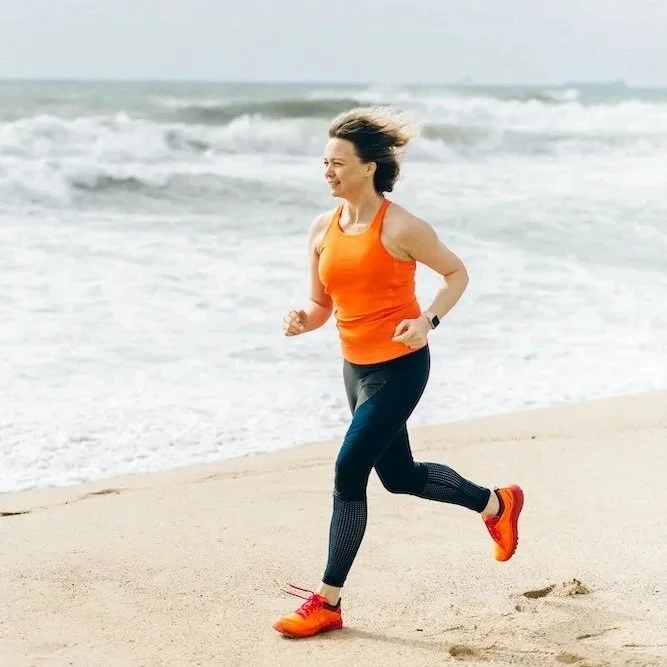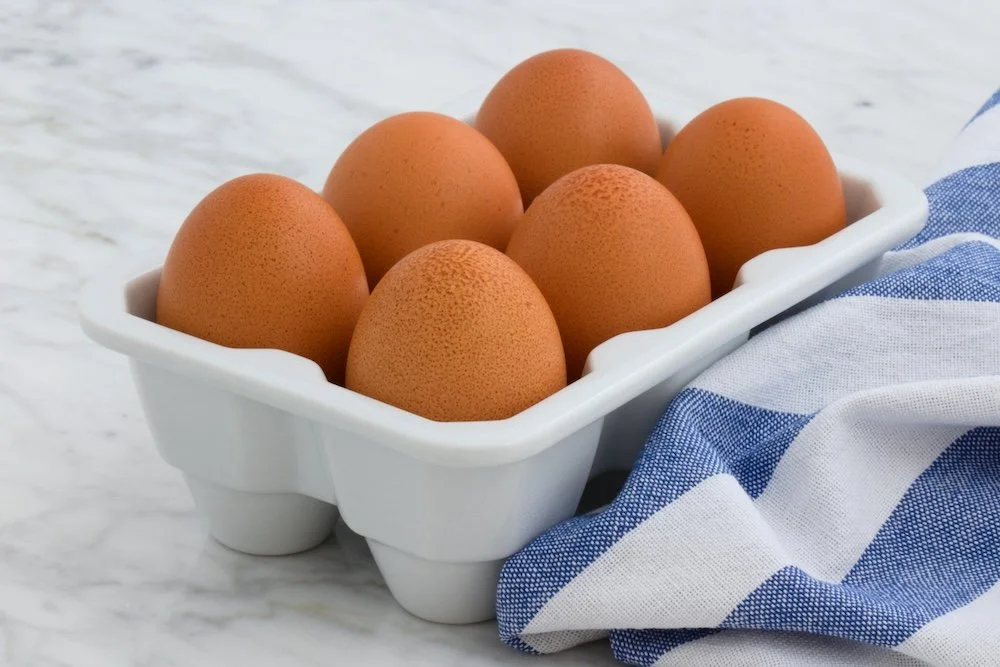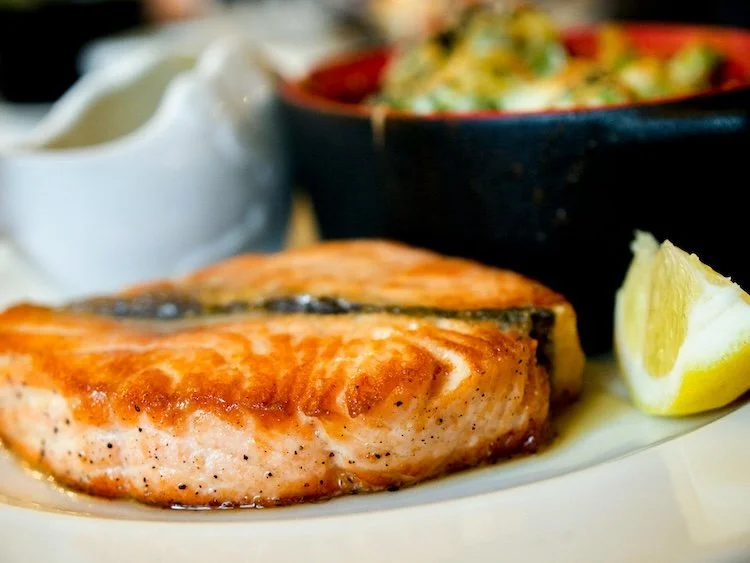Why Protein is your Midlife Powerhouse!
I have to admit something.
I’m not a runner.
I’ve tried (and it’s more like a shuffle!). However, I have many friends who swear by it. They love the feeling of flow, that their worries are behind them and feeling energised after the run.
That is, until their bodies started changing and now after a run they are feeling sluggish, tired and like their body has a mind of its own. What’s happened?!
Yep, something shifts in midlife. Suddenly, the same effort (running, cardio workout at the gym and so on…) doesn’t get the same results. And here’s why: muscle mass naturally declines as we move through perimenopause and menopause.
This isn’t just about how toned our arms look in a sleeveless dress (though yes, that’s a nice bonus). Muscle mass is your long-term investment in strength, energy, metabolism, and resilience as you age. And the secret fuel behind it? Protein.
Why Muscle Mass Declines in Midlife
From about our 30s onward, we lose around 3–8% of muscle mass per decade (yikes!) — and menopause speeds that process up. With oestrogen levels dropping, the body becomes less efficient at building and maintaining muscle. Add in busy, stressful lives and less time for movement, you’ve got a recipe for feeling weaker, wobblier, and more fatigued.
Why Muscle Mass Matters
Think of muscle as your body’s “metabolic engine.” More muscle means:
Stronger bones (muscle keeps bones healthy and reduces fracture risk).
Better metabolism (muscle burns more calories, even at rest).
More energy for everyday life, from your favourite hikes, carrying groceries to chasing kids (or grandkids).
Reduced aches and pains (muscle supports joints).
Better balance and posture (less risk of falls and injuries as we age).
Why Protein is Key
Protein is the raw material your body uses to build and repair muscle. Without enough of it, your body struggles to hang onto the muscle you already have — let alone build new.
Getting enough protein helps:
Reduce fatigue
Improve recovery after exercise
Support healthy weight management because protein keeps you full for longer.
Alleviate symptoms like brain fog and cravings by stabilising blood sugar.
Support skin, hair, and nail health because collagen is made of protein!
How Much Protein Do You Need?
Research suggests women in midlife need around 1.2–1.6 grams of protein per kilogram of body weight per day.
For example, if you weigh 70kg, that’s around 85–110g of protein per day.
That might sound like a lot, but broken down, it’s totally doable.
Here’s a simple way to think about it: aim for 25–30g of protein at each main meal, and a little extra in snacks.
Breakfast: 2 eggs + Greek yoghurt with chia seeds (≈ 25g)
Lunch: Chicken breast (the size of the back of your hand) on salad (≈ 30g)
Snack: Handful of nuts + protein smoothie (≈ 15–20g)
Dinner: Salmon fillet (≈ 30g) + veggies
That gets you close to 100g without feeling like a bodybuilder.
I’m all for an easy way to figure out how much protein I’m having without measuring everything to the gram. So here is my eyeball method to measuring protein intake:
Meat/Chicken/Fish: Palm or back of my hand = about 25–30g protein.
Eggs: 2 eggs = 12g protein.
Greek Yoghurt: ¾ cup = about 15g protein.
Lentils/Chickpeas: 1 cup cooked = about 15–18g protein.
Nuts: A small handful = 6–8g protein.
Protein isn’t just about muscles — it’s about confidence, strength, and having the energy to live life fully in midlife and beyond. By making sure you’ve got enough on your plate (literally), you give your body the building blocks it needs to thrive.
So next time you’re planning a meal, ask yourself: Where’s my protein?
Your future self will thank you. 💜
Put the mask on you first, power up on protein and thrive again!
Subscribe now to get these blogs delivered direct to your inbox and get your FREE Top Sleep Tips PDF.




